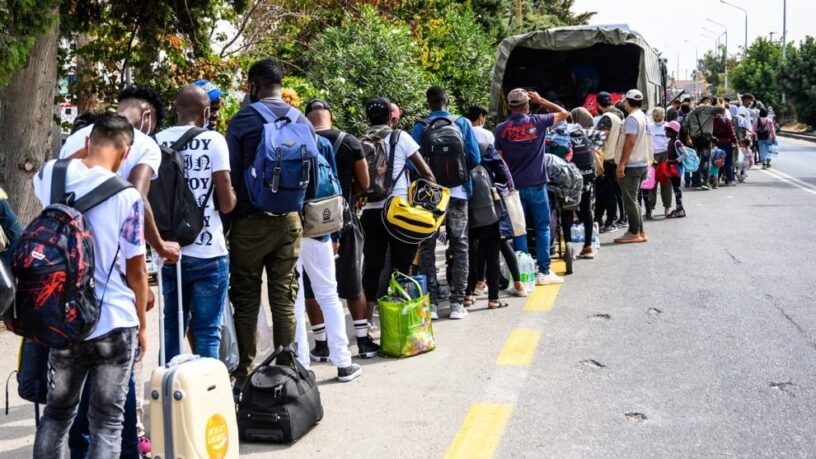New report recognises some improvements in the last few years but says the basic problem – the lack of a clear, integrated policy – persists
A new Greek Ombudsman’s report, “The Challenge of Migratory Flows and Refugee Protection Reception Conditions and Procedures,” said much has changed since 2017 in terms of improving the institutional framework and simplifying procedures, but problems persist in the institutional protection of applicants for international protection.
“The main cause of all the problems, weaknesses and deadlocks in the management people on the move has not changed in the seven years since the authority’s last special report. There is a lack of a clear policy framework with strategic planning, staff co-ordination and consistent standards; in other words, an integrated policy that would be ‘owned’ by the common political organisation of European states that is the EU,” said Andreas Pottakis, the Ombudsman.
Inspections from June 2022 to December 2023 have shown that most asylum seekers’ facilities are outside urban areas, often in remote locations. “This creates clear challenges in terms of access to goods and services, and fosters a strong sense of isolation of residents from local communities,” the report said.
The infrastructure also varies. Many operate in former military camps, others in old industrial complexes or warehouses or even a former merchant navy school. There are also some buildings specifically built to house asylum seekers.
Data show that some receive water from neighbouring municipalities while others have pumping stations with tanks. In some places, the water is not drinkable, while water comes through a borehole in some areas.
Bottled drinking water is distributed across all facilities. As for sanitation, some facilities have biological wastewater treatment systems. Others have sewage tanks, and tankers remove wastewater. In other places there is a connection to the regional sewerage network.
The report emphasises that all residents in facilities need to be adequately fed, irrespective of their status. The deprivation of food, coupled with the delay or interruption of cash assistance, raises a serious issue of respect for human dignity. It is neither easy nor straightforward for them to find employment or to receive social benefits.
The provision of suitable conditions is impacted by the fact that, in all the facilities, a significant proportion of the population is either recognised as beneficiaries of international protection, or have been rejected. This constitutes a substantial burden on the reception system for applicants for international protection.
“Despite the fact that tolerance has been noted in terms of accommodating this population, there is nevertheless exposure to risk concerning their survival, due to the interruption of cash assistance and food,” stresses the report.
Finally, delays in the asylum procedures increase the length of stays. The system is also burdened by the fact that Syrian, Afghan and Somali applicants are, in principle, still examined on the basis of admissibility even though there are high rates of recognition of their status as beneficiaries of international protection and although their return to their home countries is impossible.
Within the facilities, civil society bodies and International Organisations such as UNHCR and the International Organisation for Migration intermittently offer services, contributing to smooth management.
In general, the operation of the facilities was impacted by the cessation of the stable presence of the IOM from March 2023. As a result, employees of various specialties necessary to serve the needs of the residents no longer provide their services.



